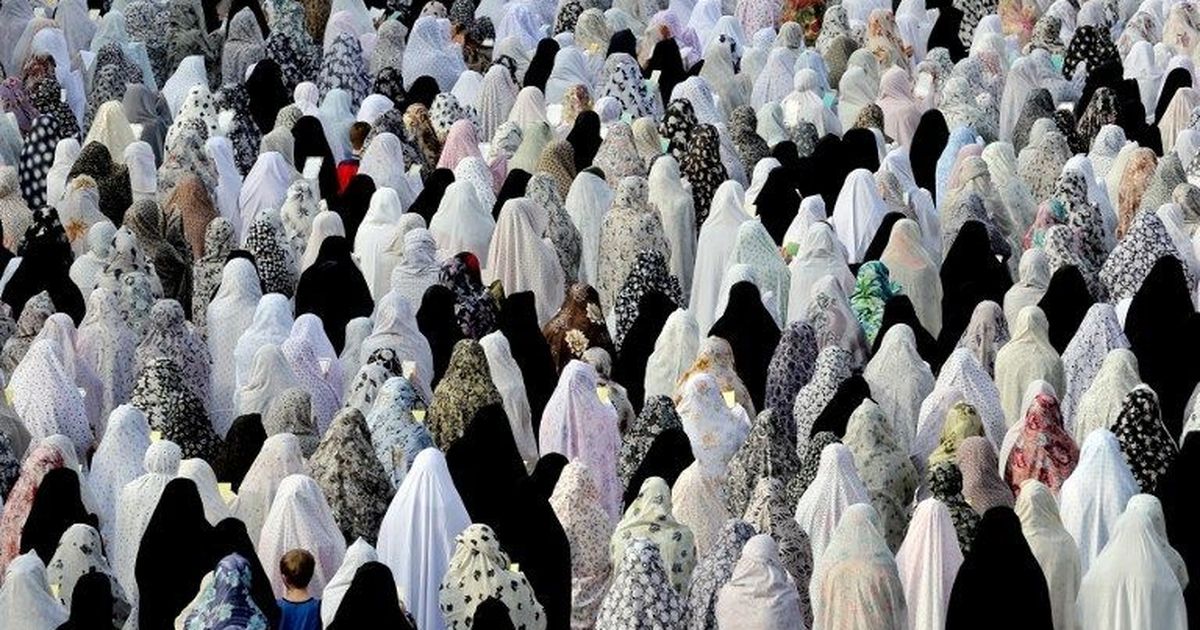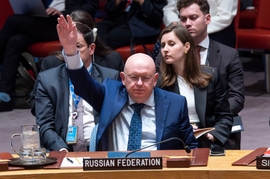Iran’s judiciary has given a stern warning to protesters and their families that are against the country’s law requiring women to cover by wearing a hijab, which has been imposed across the country since the 1979 Islamic revolution.
"If it is proved that these people are members of the ‘organized group’, and that their goal is not just to protest hijab and goes beyond that, they will face harsh charges, and it will be a problem for both them and their families,” Gholam Hossein Mohseni Ezhei, a spokesman for the Iranian judiciary, said at a press conference on Sunday, according to Mehr news agency.
Iranian police announced on February 1 that 29 women who removed their head scarves in public as a sign of protest against the law requiring women to veil in public had been arrested.
The Tehran police department said the women had been “tricked” into removing their head scarves by a propaganda campaign conducted by Iranians living abroad, “following calls by satellite channels under a campaign named White Wednesdays.”
Vida Movahedi was the first woman to be caught for protesting without a veil during events that began on December 28 and spread across the country, becoming the largest public movement since the presidential election in 2009. Movahedi was seen on Enghelab Street (“revolution street” in Persian) in Tehran, uncovered and waving a white scarf, before being arrested. She was later released on bail.
Movahedi’s protest is credited with inspiring dozens of other Iranian women to remove their headscarf in public and wave them on sticks.
Masih Alinejad, a U.S.-based Iranian journalist and activist, started the White Wednesdays campaign in May 2017, encouraging women to wear white headscarves or take them off in public as a sign of protest. In 2014, Alinejad created My Stealthy Freedom, a social media platform that encourages women in Iran to protest what is a strict law of obligatory hijab, by posting pictures of themselves in public places without their headscarves.
On February 2, the U.S. State Department released a statement condemning the arrests over veiling, saying that the U.S. government “supports the Iranian people who are protesting against women being forced to wear the hijab.”
“We condemn the reported arrests of at least 29 individuals for exercising their human rights and fundamental freedoms by standing up against the compulsory hijab,” the statement reads. “The United States remains steadfast in our support for the rights to freedom of religion, freedom of expression, and peaceful assembly. People should be free to choose the clothes they wear, and practice their faith as they desire.”
Earlier, on December 27, an Iranian police chief announced that the country will no longer detain women who violate the Islamic dress code. “Those who do not properly observe the Islamic dress code will no longer be taken to detention centers, nor will judicial cases be filed against them,” the head of the Greater Tehran police, Brigadier General Hossein Rahimi, said according to the Iran Labor News Agency.
Iran’s President Hassan Rohani has often pressed for relaxing some of Iran’s morality-related laws, which has irked hardliners that tend to dominate Iran’s security forces and the judiciary.







 Kyrgyzstan has joined the extensive reconstruction efforts in the Karabakh region of Azerbaijan, after a series of mega initiatives were launched b...
Kyrgyzstan has joined the extensive reconstruction efforts in the Karabakh region of Azerbaijan, after a series of mega initiatives were launched b...
 President Ilham Aliyev shed light on the evolving contours of the peace process with Armenia during an international conference in Baku this week. ...
President Ilham Aliyev shed light on the evolving contours of the peace process with Armenia during an international conference in Baku this week. ...
 Azerbaijan and Armenia started the process of demarcation of their border on Tuesday, with the installation of the first border markers based on ge...
Azerbaijan and Armenia started the process of demarcation of their border on Tuesday, with the installation of the first border markers based on ge...
 Iran and Pakistan have signed eight cooperation documents in various fields, and agreed to strengthen ties to fight terrorism in the region.
Iran and Pakistan have signed eight cooperation documents in various fields, and agreed to strengthen ties to fight terrorism in the region.
 As the conflict between Ukraine and Russia escalates, the strategic importance of Kharkiv, Ukraine's second-largest city, has come sharply into focus.
As the conflict between Ukraine and Russia escalates, the strategic importance of Kharkiv, Ukraine's second-largest city, has come sharply into focus.



